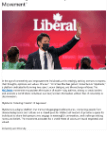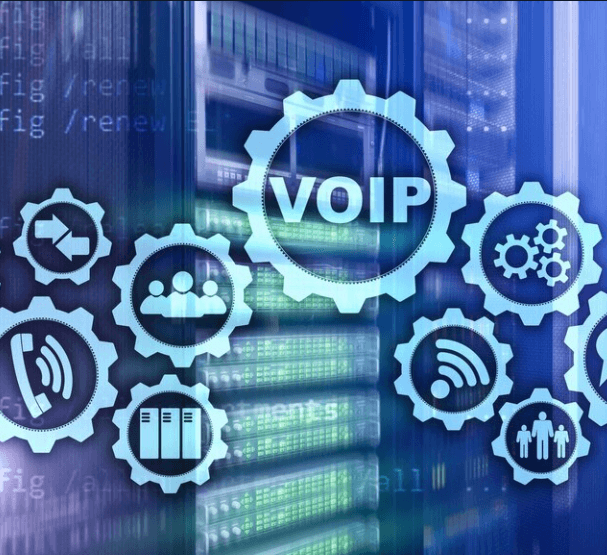Introduction
What does “myliberla” mean? The term itself might seem unfamiliar, but it likely refers to the broader concept of liberalism, a political and social philosophy advocating for freedom, equality, and democracy. In today’s world, understanding liberal perspectives is more important than ever. It shapes how we think about governance, economic policies, and social justice. So, let’s dive into what makes liberalism tick.
The Foundations of Liberalism
Historical Background
Liberalism has deep roots, stretching back to the Age of Enlightenment in the 17th and 18th centuries. Thinkers like John Locke and Jean-Jacques Rousseau laid the groundwork for modern liberal thought, emphasizing individual rights and the social contract.
Core Principles of Liberalism
Individual Liberty
At its heart, liberalism champions individual freedom. This means the right to live as one chooses, free from undue interference by the state or others, as long as one’s actions do not harm others.
Equality
Liberalism strives for equality, advocating that all individuals deserve equal rights and opportunities. This includes political equality (one person, one vote) and often extends to economic and social realms.
Democracy
Democracy is a cornerstone of liberal ideology. Liberals believe that a fair and just society is best achieved through democratic governance, where the will of the people guides decision-making.
Liberalism in Modern Society
Impact on Governance
Liberal principles heavily influence modern democratic governments. Policies promoting civil liberties, free elections, and rule of law are often rooted in liberal thought.
Economic Implications
Economically, liberalism supports free markets with some government intervention to correct market failures and ensure a safety net for the less fortunate. This balance aims to foster both economic growth and social welfare.
Social Justice and Equality
Liberalism is a driving force behind social justice movements. It pushes for policies that address inequality, such as affirmative action, equal pay, and anti-discrimination laws.
Key Figures in Liberal Thought
John Locke
Often dubbed the “Father of Liberalism,” Locke’s ideas on natural rights and government by consent were revolutionary. He argued that individuals have inherent rights to life, liberty, and property.
John Stuart Mill
Mill expanded on liberal principles, advocating for utilitarianism and the greatest happiness principle. His work also emphasized the importance of individual freedom and social progress.
Modern Liberal Thinkers
Contemporary liberals like John Rawls have further developed liberal ideas. Rawls’ theory of justice as fairness has been influential in discussions about social equity and moral philosophy.
Liberal Policies and Their Impact
Healthcare
Liberalism supports universal healthcare as a means to ensure that all individuals have access to essential medical services. This reflects the value placed on equality and social welfare.
Education
Liberals advocate for accessible and high-quality education for all. They argue that education is a fundamental right and a key driver of social mobility and economic growth.
Social Welfare
Social safety nets, such as unemployment benefits and food assistance programs, are crucial aspects of liberal policy. These measures aim to support those in need and reduce economic inequality.
Criticisms of Liberalism
Economic Critiques
Critics argue that liberal economic policies can lead to excessive government intervention and inefficiencies. They also contend that free markets can exacerbate inequalities if left unchecked.
Social and Cultural Critiques
Some believe that liberalism’s emphasis on individualism can undermine community values and social cohesion. Others critique liberal stances on issues like immigration and multiculturalism, arguing they can lead to social fragmentation.
Political Critiques
Politically, liberalism is sometimes seen as overly idealistic or naive about human nature. Critics claim it can lead to policies that are difficult to implement or sustain.
Liberalism vs. Other Ideologies
Liberalism vs. Conservatism
Conservatism often emphasizes tradition, social stability, and a limited role for government, contrasting with liberalism’s focus on change, progress, and government intervention to promote equality.
Liberalism vs. Socialism
While both advocate for equality, socialism seeks to achieve it through collective ownership and control of resources, whereas liberalism supports a capitalist economy regulated to ensure fairness.
Liberalism vs. Libertarianism
Libertarians share liberals’ emphasis on individual freedom but advocate for minimal government interference in all aspects of life, including economic affairs, which can clash with liberal support for social welfare programs.
The Role of Liberalism in Global Politics
International Relations
Liberalism influences global politics through its advocacy for democracy, human rights, and international cooperation. Liberal ideas underpin many international institutions and agreements.
Global Organizations
Organizations like the United Nations and the European Union are founded on liberal principles, promoting peace, security, and development worldwide.
Human Rights Advocacy
Liberalism’s commitment to individual rights drives much of the global human rights agenda, pushing for protections against abuses and advocating for marginalized groups.
Case Studies of Liberal Governments
Scandinavian Countries
Countries like Sweden and Denmark are often cited as examples of successful liberal governance, balancing free markets with comprehensive welfare states to achieve high standards of living and low inequality.
Canada
Canada’s liberal policies include universal healthcare, progressive taxation, and multiculturalism, reflecting its commitment to equality and social justice.
New Zealand
New Zealand is known for its liberal approach to social policies, including strong environmental protections, gender equality initiatives, and indigenous rights.
The Future of Liberalism
Challenges Ahead
Liberalism faces challenges such as rising populism, economic inequality, and climate change. These issues require adapting liberal principles to new realities.
Potential Evolutions
Liberalism may evolve to address contemporary concerns, incorporating elements of environmental sustainability and digital rights into its framework.
The Role of Technology
Technology can be both a tool and a challenge for liberalism. It offers new ways to promote freedom and equality but also raises questions about privacy, security, and access.
Liberalism in Popular Culture
Representation in Media
Liberal themes are prevalent in media, from news outlets advocating for civil liberties to films and TV shows exploring issues of justice and equality.
Influence on Art and Literature
Art and literature often reflect liberal values, challenging societal norms and promoting progressive ideas. Works by authors like George Orwell and Margaret Atwood highlight the struggle for freedom and justice.
Grassroots Liberal Movements
Community Organizations
Local groups play a crucial role in promoting liberal values, advocating for issues like education reform, healthcare access, and environmental protection.
Advocacy Groups
Organizations like the ACLU and Amnesty International work to protect civil liberties and human rights, embodying liberal principles in action.
Youth Involvement
Young people are increasingly engaged in liberal causes, from climate activism to social justice movements, driving change at both local and global levels.
Myth-Busting Liberalism
Common Misconceptions
Liberalism is often misunderstood. Common myths include the idea that liberals are anti-business or that they advocate for anarchy. In reality, liberalism seeks a balance between freedom and regulation.
Addressing Stereotypes
Liberalism is diverse, encompassing a range of views. It is not a monolithic ideology but rather a spectrum of ideas focused on promoting human dignity and fairness.
Engaging with Liberal Ideas
How to Stay Informed
To understand liberalism, read widely from reputable sources, including books, articles, and academic papers. Engage with different perspectives to gain a comprehensive view.
Joining the Conversation
Participate in discussions, whether online or in-person. Join forums, attend debates, and engage with others to deepen your understanding and contribute to the dialogue.
Practical Steps for Involvement
Get involved in local politics, volunteer with advocacy groups, or support liberal candidates. Small actions can collectively make a significant impact.
Conclusion
Liberalism, with its emphasis on freedom, equality, and democracy, remains a vital force in shaping modern society. Despite challenges and criticisms, it continues to evolve, addressing contemporary issues and promoting a fair and just world. Understanding and engaging with liberal ideas can help us build a more equitable and inclusive future.




